Please join us on Monday Nov 4, 4:30-5:30 (Hamilton Library 3F) for a talk by Prof. Marika Cifor (Information School, University of Washington) on Activist Archiving as Cure: Art, Activism, and Survival in the HIV/AIDS Archives.
Title: Activist Archiving as Cure: Art, Activism, and Survival in the HIV/AIDS Archives
Abstract:
AIDS activists, advocacy organizations, physicians and medical researchers, and people living with HIV/AIDS have devoted vast energy and resources to finding a cure for HIV/AIDS. Now well into the fourth decade of the HIV/AIDS pandemic, a cure, even in the most limited medical sense, remains elusive. Drawing from her book-in-progress, Viral Cultures: Activist Archives at the End of AIDS, Marika Cifor examines activist archiving as cure. Since 1994, Visual AIDS a community-based arts organization has documented, collected, preserved, and made accessible the records of artists living with HIV and estates of artists who have perished, in order to preserve and honor their legacies, and to expose and redress AIDS’ injustices. The holistic cure Visual AIDS demands is requisite to responding in kind to an epidemic that is and always has been political and cultural as much as biomedical. In this talk, Cifor analyzes the Archive Project’s curative efforts and their implications in three parts. First, examining the archives as a remedy for one kind of death, that of artistic career. Second, she turns to AIDS archiving as communal acts of critical care. Finally, she examines the archives as curing, preserving to ensure long-term animation. The Archive Project and the Artist+ Registry, its digital counterpart, highlight the material and conceptual affordances of archiving as anti-AIDS activism. Its records and their nimble activation hold imaginative capacities for challenging persistent gendered, racialized, and classed discrimination and stigmatization faced by those living with HIV/AIDS. The archives’ work also demonstrates the conjoined limitations of art and activist archiving in meeting urgent needs and redressing harm. Despite such constraints, activist archiving can vitally engender survival.
Bio:
Marika Cifor, PhD, is an Assistant Professor in the Information School at the University of Washington. She is a feminist scholar of archival studies and digital studies. Her research investigates how individuals and communities marginalized by gender, sexuality, race and ethnicity, and HIV-status are represented and how they document and represent themselves and their social movements in archives and digital cultures. Currently, Cifor is working on a book and digital project, Viral Cultures: Activist Archives at the End of AIDS (University of Minnesota Press, under contract), that examines the critical potential of the emotions and memories that are recorded and produced by archives documenting HIV/AIDS activism during the 1980s and 1990s. The book also investigates the activation of these records on contemporary digital platforms by artists, archivists, and activists. She holds PhD in Information Studies from UCLA and an MLIS and MA from Simmons College.

